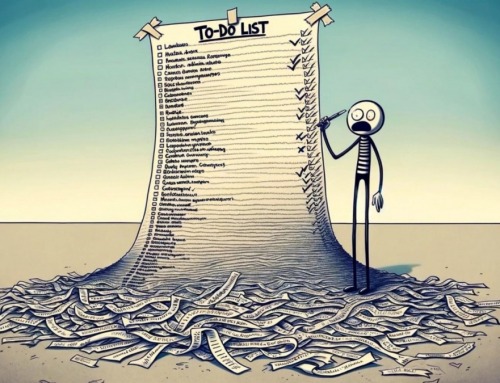There are only a few ways to get it right
 In May of 1904, Harrington Emerson was tasked with improving the Santa Fe railway system. At the time, competition was stiff, costs were rising, and so was demand for freight and passenger transportation.
In May of 1904, Harrington Emerson was tasked with improving the Santa Fe railway system. At the time, competition was stiff, costs were rising, and so was demand for freight and passenger transportation.
Emerson created a management movement called “Betterment Work,” which, today, would be considered Continuous Improvement. He knew that in order to become an efficient railroad—which would lower operating costs—he first had to create an effective railroad—by simplifying and focusing first on the principles of success. He wrote:
“As to methods there may be a million and then some, but principles are few. The man who grasps principles can successfully select his own methods. The man who tries methods, ignoring principles, is sure to have trouble.”
In other words, there must be a million ways to be busy, and only a few ways to be successful. If you want success, identify and incorporate into your life the principles that govern success.
Our principles are the source of our actions. Our actions are the source of our happiness or misery. Too much care, therefore, can’t be taken in forming our principles.
Stephen R. Covey wrote: “There are principles that govern human effectiveness—natural laws in the human dimension that are just as real, just as unchanging and unarguably “there” as laws such as gravity are in the physical dimension… Principles… that govern human growth and happiness.” And may we add, that principles also govern human potential.
What do you want to achieve?
 At PlanPlus Online, we ask customers what they hope to achieve. Here’s just a sample of what they tell us:
At PlanPlus Online, we ask customers what they hope to achieve. Here’s just a sample of what they tell us:
- I plan to rule the world
- Organize and succeed
- Improve efficiency
- Better planning
- Keep organized
- Productivity (and faster productivity)
- Stay organized
- Manage both personal and professional schedules
- More effective time management
- Manage my life
- Highly productive and fruitful life
- Get it done
- Prioritize and execute
In addition to the set of highly effective principles identified by Stephen Covey in his enduring book, “The 7 Habits of Highly Effective People,” here are a few more principles to consider which will help you succeed:
Principles outlive tactics
In basketball, thousands of plays have been invented over the years, some with more success than others. Good coaches are able to create plays based on their team’s strengths and their opponent’s weaknesses.
Their plays are based on principles that they fully understand. With plays based on principles, a good coach will be able to figure out what the play was designed to accomplish, and how to adjust if something is going wrong.
Tactics provide the “what” and the “how.” And sometimes that can be enough to get a result. But if you want successful results no matter how the landscape changes, you must also understand the “why.” By understanding the principles that shape your reality, your “why” will more accurately guide your thoughts and actions.
If you haven’t already, go through the “What is Your Why?” section of PlanPlus Online personal planning.
Direction over speed
Finding your why, your core values, and what roles in life you fill will help you determine what direction you need to go. If you’re pointed in the wrong direction, it doesn’t matter how fast you’re traveling. If you’re locked on to your desired destination, all progress is positive, no matter how slow you’re going. You’ll reach your goal eventually.
Live deliberately
How many of us settle into habits and simply live the same year over and over again, waiting for some future event to occur before we start living? Life is happening now.
Living deliberately is about awareness and purposeful action. If we take the necessary steps to craft each day deliberately, when our final day arrives we’ll be able to look back at a life brimming with joy, fulfillment, and satisfaction.
Thoughtful opinions held loosely
How do you respond when you’re faced with facts that contradict a sometimes long-held and cherished belief? As much as we’d love to consider ourselves open-minded and ever eager to learn, our nature is to disregard information that could cause any cognitive dissonance.
None of us have a perfect understanding of the world we live in. As our understanding increases, we must be willing to adapt and change if we are to learn and grow to position ourselves to lead the life we want to live.
Own your actions
One of the most powerful ways to make giant leaps forward in our lives is to not only accept that we’ll screw up, but to actively seek out correction when we do. When we refuse to accept ownership of our mistakes, we’ve warped the feedback look we rely on to make better decisions in the future. Stephen Covey says that proactive people “do not blame circumstances, conditions, or conditioning for their behavior.







